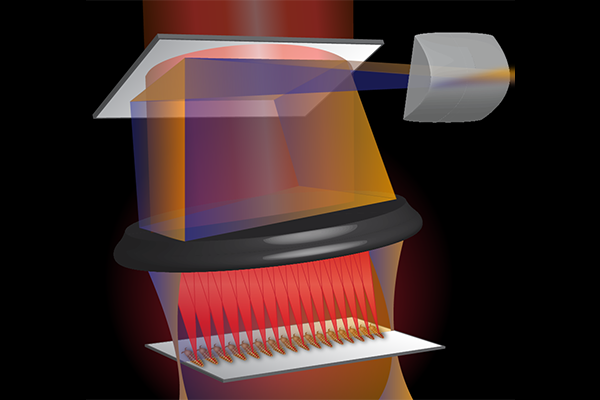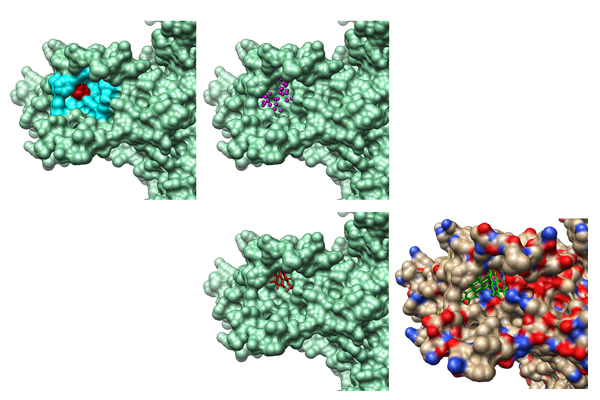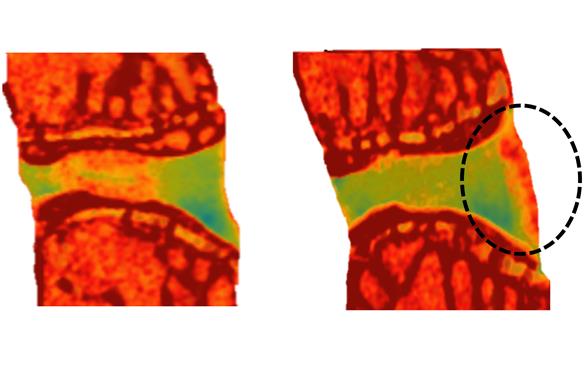It's easy to start your application.
Research Areas
The faculty within the Department of Biomedical Engineering at the McKelvey School of Engineering focus their research on seven key areas.
Biomedical & Biological Imaging
We aim to solve important basic science and clinical issues by developing new technologies to complement the already strong research and clinical imaging activities in our community.

Colored light investigated to control irregular heartbeat noninvasively
Researchers will use fruit flies to study a noninvasive stimulation and imaging technique to regulate an irregular heartbeat

WashU-developed holograms help physicians during cardiac procedure
A holographic display developed by WashU researchers improves physician accuracy when performing a procedure to treat irregular heartbeat
Cardiovascular Engineering
We seek to develop new methods to study, diagnose and treat cardiovascular diseases, including understanding how molecules control the heartbeat, imaging the electrical potential at the surface of the heart and creating mathematical models to connect heart function to its nanoscale molecular foundation.
Cell & Molecular Bioengineering
This program seeks to develop innovative approaches for treating disease, such as those associated with misfolded proteins like Alzheimer’s and Huntington’s, by manipulating molecules, cells or systems.

Compound may prevent risk of a form of arrhythmia from common medications
Through both computational and experimental validation, a multi-institutional team of researchers has identified a compound that prevents the lengthening of the heart’s electrical event, or action potential, resulting in a major step toward safer use and expanded therapeutic efficacy of these medications when taken in combination.

Stroke-recovery device using brain-computer interface receives FDA market authorization
Innovative multidisciplinary research at Washington University led to development of 'breakthrough' device
Neural Engineering
Faculty involved in this area of research study neurons, neural systems, behavior and neurological disease; explore novel approaches to sensory and motor processing, and fundamentals of neural plasticity; and design neuroprosthetics.
Orthopedic Engineering
In this area, we seek to understand the mechanical and material properties of bone and soft tissues, and exploit biomaterial and cellular processes to mediate injury responses and promote regeneration.
Lab-grown cartilage
Engineered stem cells could revolutionize arthritis therapy and joint replacement

WashU engineering, orthopedic team to study painful degenerative condition
An interdisciplinary WashU team can now study changes to nerve cells and cross talk between degenerating spinal discs and sensory nerves looking at changes that might cause pain.
Regenerative Engineering in Medicine
This program aims to develop materials that promote healing and the regeneration of functional tissues by researching normal growth processes and the responses of cells, tissues and organisms to disease and trauma.
Women's Health Technologies
Faculty involved in this program utilize modeling, imaging, and experimental approaches to study women’s reproductive health and gynecologic cancers including ovarian, cervical and uterine cancers.
‘Hopeful technology’ could change detection, diagnosis of deadly ovarian cancer
A promising new diagnostic imaging technique may improve current standard of care for patients with ovarian cancer.
